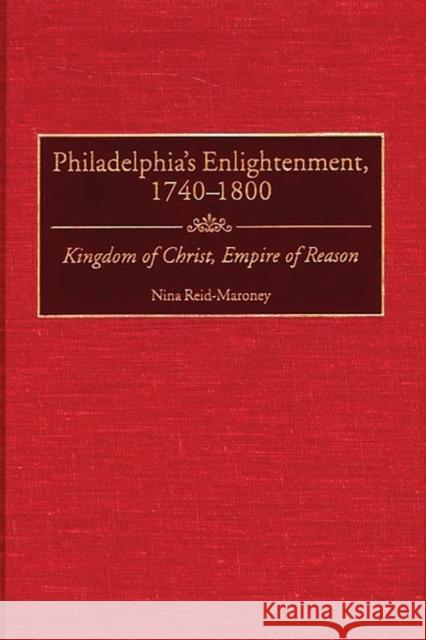Philadelphia's Enlightenment, 1740-1800: Kingdom of Christ, Empire of Reason » książka
Philadelphia's Enlightenment, 1740-1800: Kingdom of Christ, Empire of Reason
ISBN-13: 9780313314728 / Angielski / Twarda / 2000 / 216 str.
Rather than treating the Great Awakening and the Enlightenment as defining opposites in 18th century American culture, this study argues that the imperatives of the great revival actually shaped the pursuit of enlightened science. Reid-Maroney traces the interwoven histories of the two movements by reconstructing the intellectual world of the Philadelphia circle. Prophets of the Enlightenment had long tried to resolve pressing questions about the limitations of human reason and the sources of our knowledge about the created order of things. The leaders of the Awakening addressed those questions with a new urgency and, in the process, determined the character of the Enlightenment emerging in Philadelphia's celebrated culture of science.
Tracing the influence of evangelical sensibility and the development of a Calvinist parallel to the philosophical skepticism of enlightened Scots, Reid-Maroney finds that the Philadelphians' love of science rested on a radical critique of human reason, even while it acknowledged that reason was the dignifying and distinguishing property of human nature. Benjamin Rush alluded to an enlightenment wrought by grace in his image of the Kingdom of Christ and the Empire of Reason. In the post-Revolutionary period, the redemptive Enlightenment of the Philadelphia circle reached its greatest cultural power as a vision for scientific progress in the new republic.











